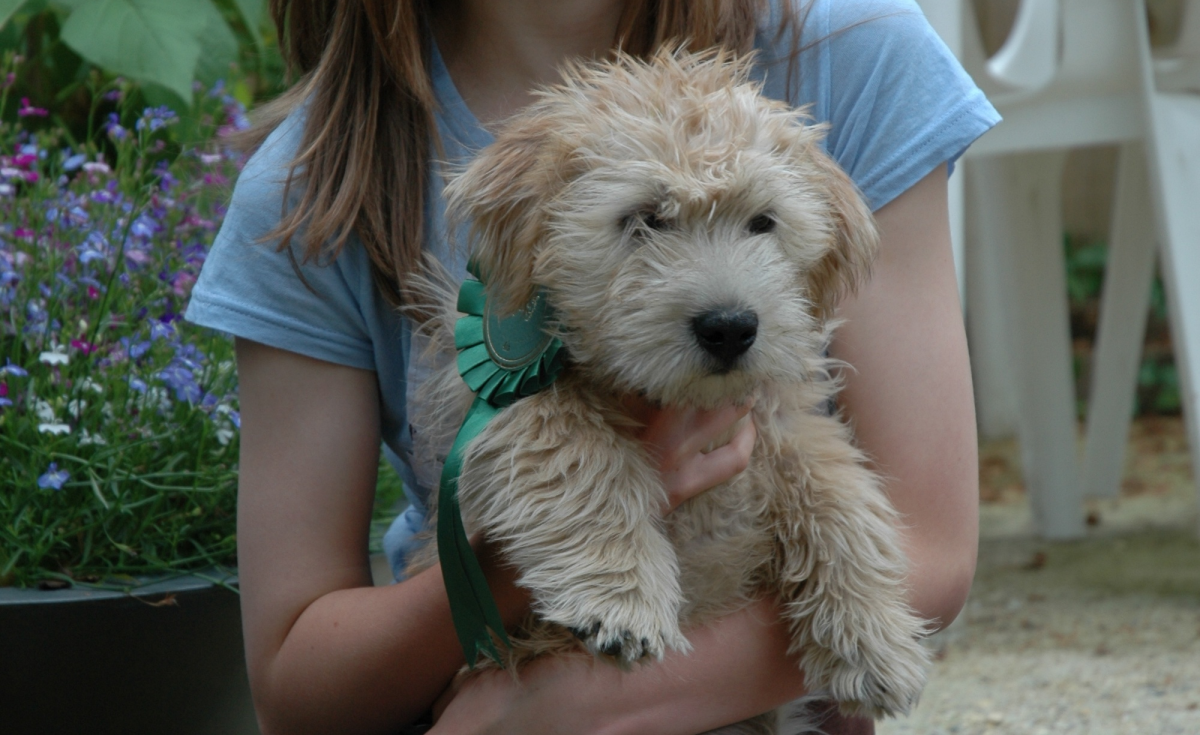Looking after your puppy’s development
The phrase “everything in moderation” has never been more relevant regarding exercising puppies and I have recently become aware of the inconsistent advice given by breeders. There are two large breed puppies in our village. Puppy A at the for end of the village is being exercised and socialised under the breeder’s advice and puppy B was, on completion of vaccinations, suddenly being taken on road walks for too long for her age. My neighbour was totally unaware that she might be creating problems for her puppy later in life.
A puppy can be deceptive and very enthusiastic of experiencing a whole new world outside and it is so easy to forget that they are still very young.
Some of you might have seen fox cubs playing together on the Spring Watch TV programme. Their exercise was ‘rough and tumble’, strengthening their young bodies as well as gaining mental stimulation. You would not take a toddler out for a long road walk because we all know their bones are still soft at this age and puppies are just the same.
Controlled exercise
The toddler will play excitedly at home, flop down and decide when he has had enough i.e. responding to his own body signals and a puppy will do likewise. Controlled exercise is not playing inside the house or garden, but outside going on a walk with the lead on, obedience training with other dogs or free running in a field. Controlled exercise away from home gets the puppy excited and the adrenalin is pumping meeting other people, other puppies and different environments. This is when your puppy can appear enthusiastic, behaving like on older dog due to the adrenalin levels. He can’t listen to his body signals telling him that ‘enough is enough’, because he is so excited at experiencing this new world outside his home. It must be said however that controlled exercise is excellent taken in moderation as it broadens his horizons and gets him socialised.
Many breeders quote the ‘five minutes per month per outing rule’ as a guide. A three month old = 15mins, four month old = 20 mins going up to year = 1hr. As Glens are an achondroplasic (dwarf) breed with slightly bowed front legs, care needs to be taken to allow the bones to develop gradually and road walking for on hour, even for a year old Glen, is not, in my opinion, a good idea.
For the same reason, climbing up and down stairs or jumping on and off furniture is not good as this practice puts too much stress on on underdeveloped skeleton. We have always had a dog settee
with the seat cushions removed, though it’s a ‘no go’ area for the young puppies to use. Our current one is super-low, ideal for the dogs but bad for my back!
Alternate controlled exercise, eg walks on lead with obedience training or puppy socialisation classes. The alternatives are just as stimulating, put manners on your puppy and are wonderful opportunities for interaction. Prolonged sessions of throwing toys in the garden for your puppy to retrieve can also put stress on young joints as they skid and twist and get your puppy over stimulated.
Exercise vs Games
Try devising games such as a treasure hunt for a favourite toy or treat. My Glens loved rolling the big hollow ball with treats inside and patiently waiting for them to drop out of the hole underneath! This is an excellent winter bad-weather activity. Your puppy also needs to respond to ‘down time’ just like a toddler. Leave him in his crate with a treat such as a reputable puppy chew so that he learns to relax. Ignore protestations and he will benefit just as we do from ‘chilling out’.
Why do we need to be vigilant without being over anxious regarding exercise in the early months? It is important to ‘read’ your dog at whatever age. Look for signs of fatigue, discomfort etc. Over stimulating, too much road walking and running can put too much stress on a young skeleton.
Your puppy will have grown considerably between six months and a year old so may appear to look like an adult. Glens belong to the slow maturing breeds and are not fully developed until well over two years . Prolonged controlled exercise by a young puppy can cause muscle fibres to become damaged, resulting in stiffness and reduced mobility in later years. Before athletes run a marathon, there will have been a lot of gradual build up in training to avoid muscle tears and indeed over-taxing the heart. Moderation in all things in the early months is the key to a long and happy life together knowing your Glen has developed during his puppy stage through to adulthood at a natural pace.
Ann Quinn
This page is reproduced from an article in the Summer 2016 edition of ‘Roaming Thro The Glen’ by Ann Quinn and is reproduced here with full permission
